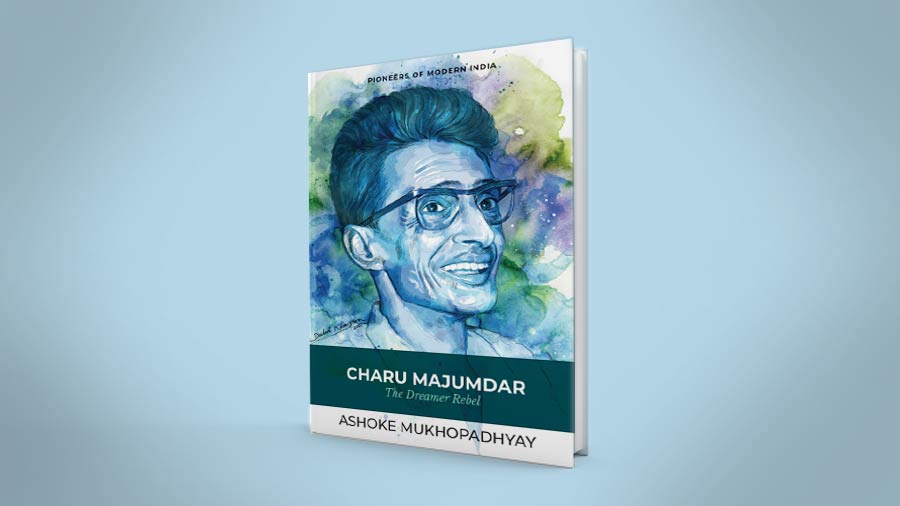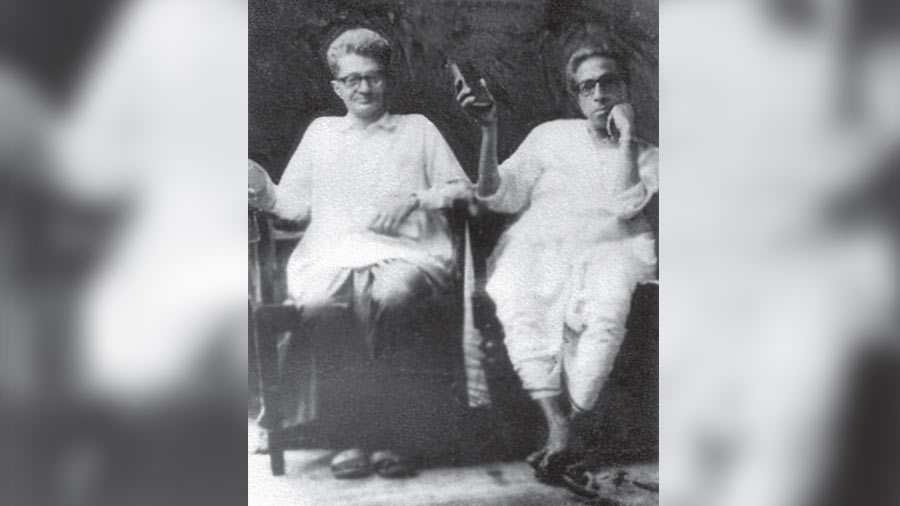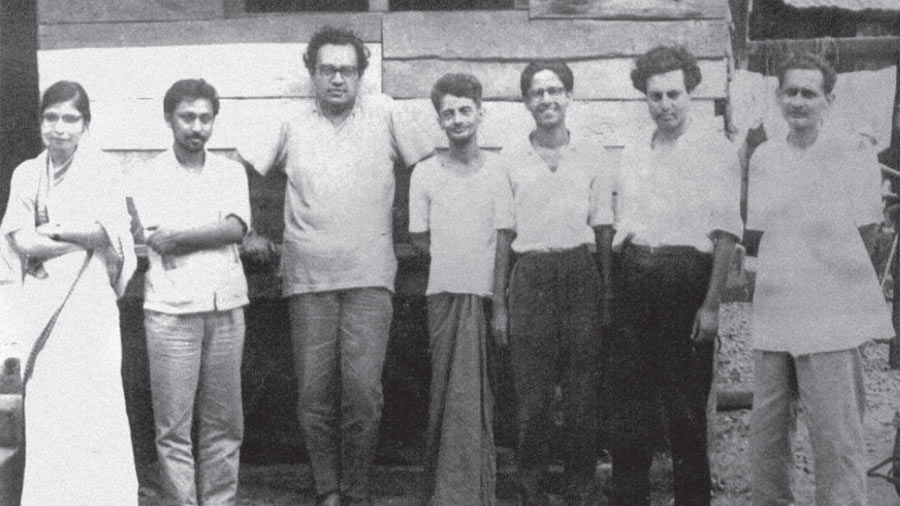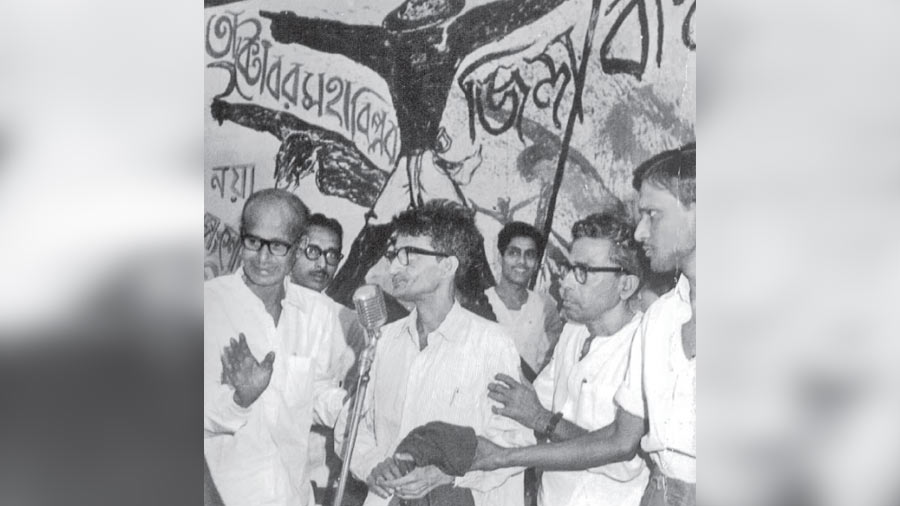Fifty-five years ago, in the month of May, a peasant uprising against the autocracy of landlords in the sleepy north Bengal village of Naxalbari, launched a political movement that took the country by storm. Bengal, always the hotbed of revolution, was racked with chaos and violence. As policemen and politicians grappled with the Naxal “problem”, the layman found himself torn between taking the side of the oppressed or a stand against bloodshed. One of the prominent proponents was Charu Majumdar. Known for penning ‘The Historic Eight Documents’ and ultimately giving his life up for the movement, Majumdar died in police custody in 1972.
Below is an excerpt from Charu Majumdar – The Dreamer Rebel by Ashoke Mukhopadhyay. The biography is part of a monograph series by Niyogi Books, titled Pioneers of Modern India.

********************
Charu was admitted to the Siliguri Boys’ High School in the sixth standard. He was meritorious and a little maverick. In fact, one of his friends at Siliguri said, in a lighter vein though, that the environment at his house was also ‘loose and anarchic’.
A teacher had caught a group of students including Charu smoking at the school hostel red-handed. All the other boys hung their heads in shame and handed over the tin container full of fifty sticks of Carlton cigarettes. ‘Sir, please excuse us, this won’t happen in future.’ The teacher looked at Charu, ‘What about you?’ Charu blurted out—‘Sir, they are amateurs, may give up smoking; I cannot shun away; it’s like a regular meal to me since class three. But, Sir, I promise, I will not smoke in front of you.’

Charu Majumdar and Saroj Dutta waving the Red Book (1970)
Yet, he was definitely an above-average student. After completing his homework, the boy, sporting baggy shorts and a spotted shirt, would take to the streets and visit one of his friends who needed help to study. But the meritorious boy did not want to get any rank. At an examination in class seven, he submitted his paper in an hour. As soon as he had come out of the hall, he met a teacher—‘What happened! I am sure, you have not answered all the questions; go inside, complete the paper, then submit.’ Charu smiled, ‘Sir, no need. Whatever answers I have written, it will secure me 40 marks; pass mark is covered; Sir, I do not want more.’ The teacher was flabbergasted!
This ‘anarchy’ happened on the eve of the Matriculation examination. He ranked first in the school final examination. Teachers hoped that Charu, if he could keep his ‘sanity’, was sure to get a scholarship. Consequently, the school would also be in the spotlight. A group of teachers had started to monitor him. A few days before the examination, it transpired that the boy had donated all his books to a needy friend. He had memorised all the textbooks. He had no aspiration of getting a scholarship but was confident that he would secure the first division. Hurt at this freak act, the headmaster said, ‘Well, then why are you going to secure first division, no need.’
‘Sir, if I don’t obtain the bare minimum first division, my father and you, everyone will be unhappy and hurt... that’s why—’ Charu matriculated in the first division and in 1937, to pursue his I.Sc, joined Edward College in Pabna (now in Bangladesh).

In front of Majumdar’s Siliguri ancestral house. (L-R) Kumkum Bhattacharya, Nirmal Guha Roy (Little Theatre Group), Utpal Dutt, Charu Majumdar, Pabitra Sengupta (One of the first recruits of Charu Majumdar), Tapas Sen and Souren Bose (1967)
At college, Charu found an interesting milieu of a group of young students who believed in communism and dreamt of a peasant uprising against landlords and an egalitarian society. Defying the government ban imposed on the Communist Party of India, in 1934 they preached their opinions charged with passion. The youngsters were in the habit of drinking tea; hence they had made arrangements for preparing their favourite drink at the college hostel itself! With cigarettes on the lips, paused by some timely puffs, they would go on discussing history, physics, chemistry, philosophy, literature, probably any subject under the sun, for hours. Charu enjoyed their company and started devouring left-leaning books beyond formal study hours. Charu inherited this reading habit from his father Bireshwar, who was fond of English classics and poems. In their family residence at Siliguri, there was a trunk load of those books.
The final examination neared, but Charu was increasingly getting drawn towards Communism and was dying to apply the theory into practice on Indian soil. Bireshwar got a smell of it; wrote to him requesting to continue the course, at least to appear in the final examination of I.Sc. But Charu had different plans; he distributed all his books amongst friends, stuffed a cambis bag with the rest of his belongings and came back to Siliguri in 1938.
All images and captions are from the book Charu Mazumdar – The Dreamer Rebel published by Niyogi Books. Get your copy here.
